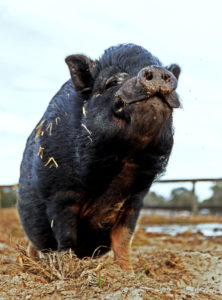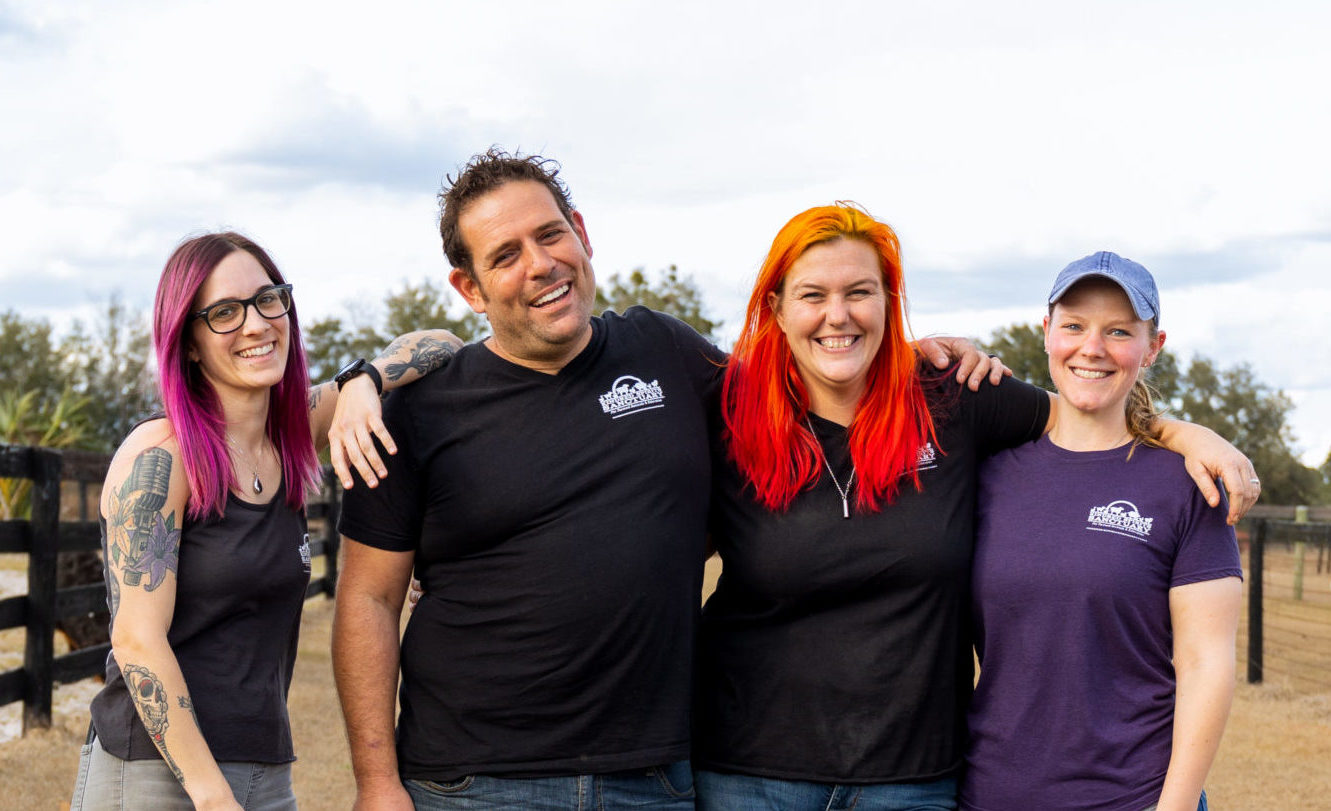
Meet the team members who provide compassionate care at a local farm animal sanctuary and offer the community a place to connect with these special creatures and discover the unique, and often humorous, personalities of their residents.
Milo, an adorable baby goat born on Christmas Day 2021, ambles around on the ground, his wobbly legs causing him to stumble and occasionally plop down and then jump back up, as a group of enthusiastic humans gather around him like excited parents watching their child take its first steps. And just like an actual child, Milo is unabashedly gleeful about his ability to propel himself forward on those little legs. He clumsily lurches forward and rocks back and forth, eager to run and jump and see what else is possible. Eyes bright with excitement, he dashes between the outstretched arms of four people he recognizes as friends, who show their love by cheering him on and offering him a safe spot to land. He pauses for cuddles and kisses and then is off again with a no particular destination in mind, but a spirit for adventure.
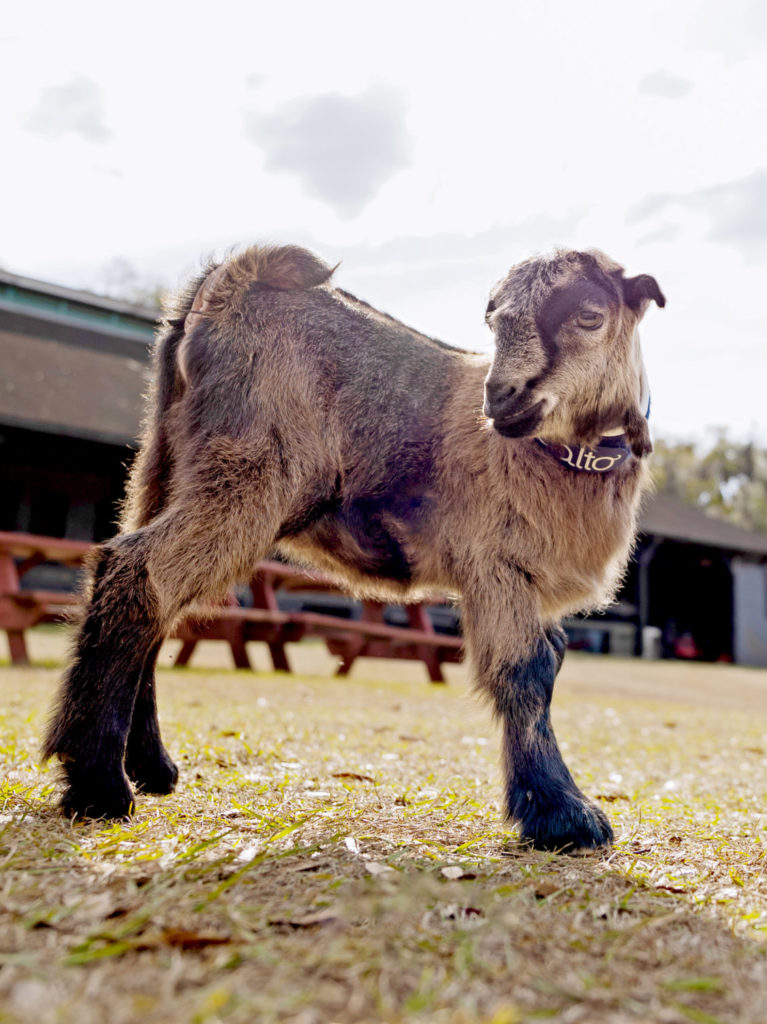
“He came to us when he was 19 days old,” explains Logan Vindett, executive director of Kindred Spirits Sanctuary (KSS) in Citra. “He was born on a goat farm and a family had gone to buy some other goats and they saw him there on the ground and decided to take him.”
The family soon found that they were in over their heads and didn’t know how to care for Milo and that’s when they reached out to KSS. The 501(c)(3) nonprofi t organization is a home for abused, neglected, abandoned and special needs farm animals from all over the country, where they can live out the remainder of their lives without pain, hunger or fear of exploitation.
“They said, ‘Oh my gosh, we don’t know what we’re doing,’ and he was getting worse at that point because he needed treatment. So, we agreed to take him,” recalls Logan. “That’s what we do. We take the quote/unquote broken ones. So, they brought him to us.”
“He was unable to stand or right himself,” Operations Manager and Logan’s husband Tony Vindett adds. “He was lying completely on his side, legs out and he couldn’t move.”
After they completed his intake blood work, it showed that Milo was septic. The decision was made to take him to the University of Florida Large Animal Hospital for further testing, which revealed that his C7 vertebrae was damaged due to an infection that likely happened because of a problem with his umbilical cord. After an MRI, they were told that the most humane thing to do would be to euthanize him.
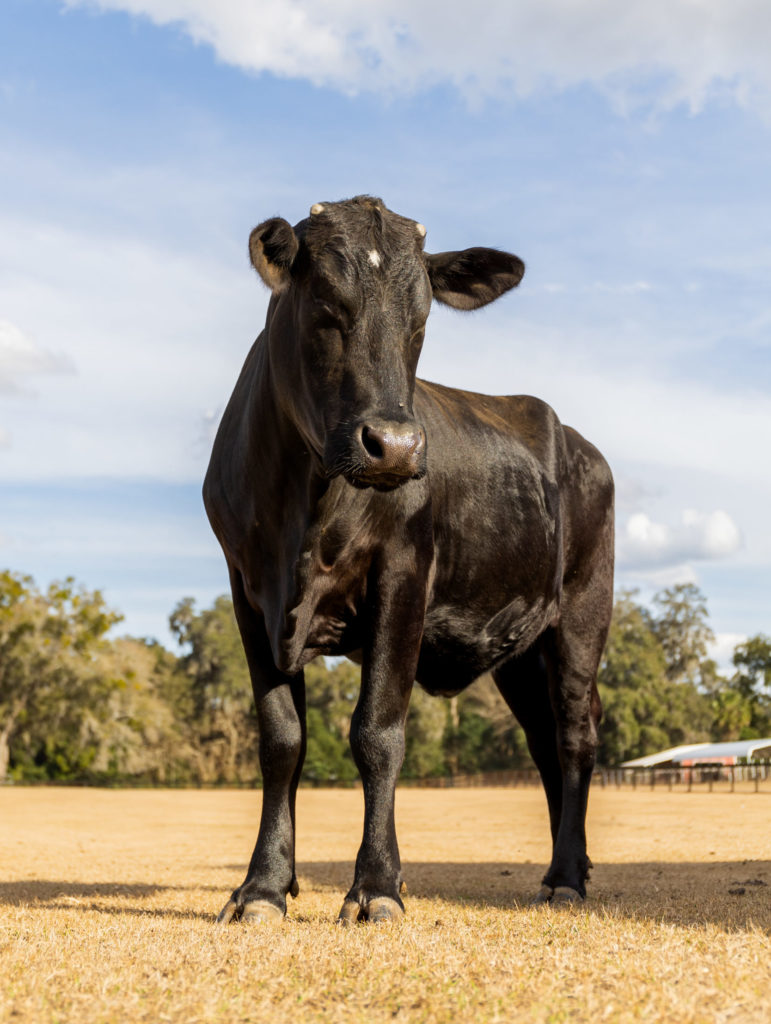
“We were like, Um, we’re not ready for that yet,” Logan explains. “We decided to bring him home and when we got him here, he looked pretty comfortable and happy. So, we decided to put him on hospice care. Hospice care for him meant that we were going to give him all the things he loves and also give him time. So, as long as he was happy and comfortable, we were going to let him be.”
Then one morning Logan awoke to find the baby goat, who they were told would never be able to walk, sit up or “move with intention,” standing up in his play pen staring at her.
“Within a few days he started walking,” she shares. “Now he’s running. He loves to be outside. He’s walking, jumping, hopping…all the normal baby goat kid things.”
She says his C7 vertebrae is “pretty disintegrated” from the infection and that he will need a follow-up MRI at some point to monitor the damage to his neck. While he’s too young to be a candidate for surgery, it may be an option in a few years. In the meantime, he wears a neck brace for extra support.
“He’s doing great and surprising us all the time,” she says. “I don’t think we will ever introduce him to other goats because of his vertebrae damage. He will probably meet other goats through a fence, so he can be protected and not get head-butted. We don’t really know what his future will be, but he’s very happy right now.”
“The truth of it is, we don’t know how long he will make it,” Tony offers. “He could make it to adulthood and live out his life or he may not. That’s one of the negatives that we have to deal with here.”
“But that’s what we do here,” Logan counters. “We take in the special animals who need extensive veterinary care. We have a lot of experience with the special ones and it’s what we like to do.”
Lead Veterinarian Tech Emily Armagost, who has cared for four other special cases like Milo during her four and a half years at KSS, explains that both the successful outcomes and the losses contribute to her desire to take on a challenge like his case.
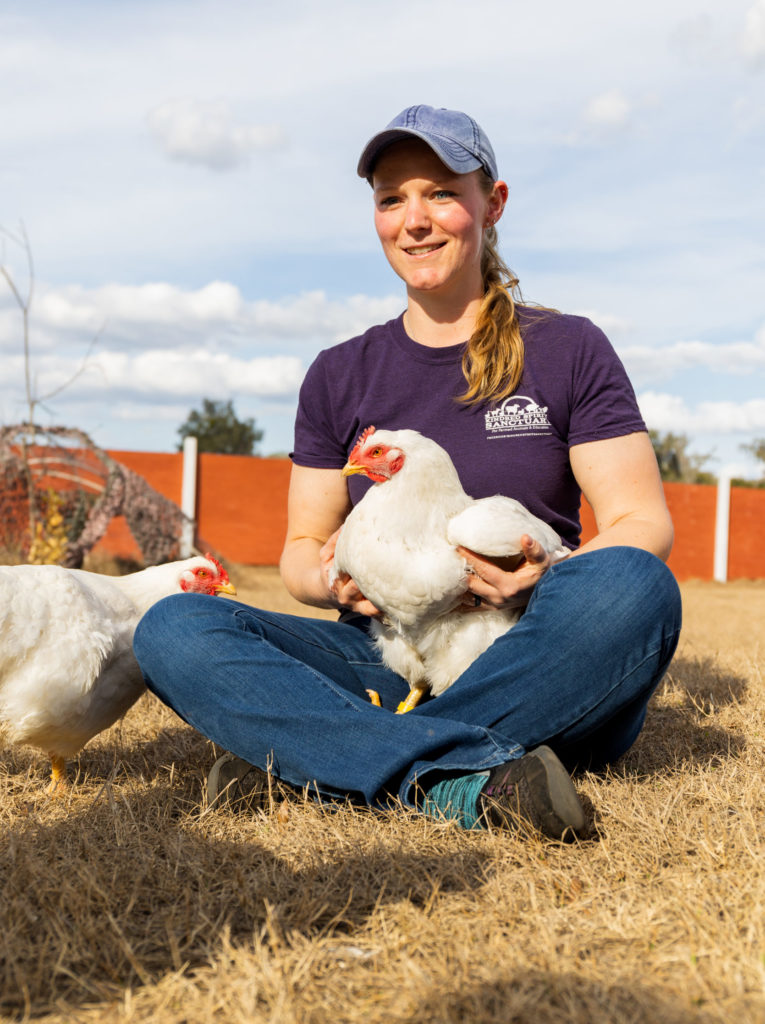
“Cindy came in kind of like Milo.,” Emily explains of another goat that was unable to walk due to a neurological condition, which the sanctuary took on in 2021. “She ended up having an issue with her brain and her liver, but we gave her two really good months,” she says of the little lady they affectionately described as sassy, sweet and opinionated in one Facebook post. “It was very rewarding. It’s the reason why I’m now willing to turn around and do the same for Milo, even knowing that he might not live that long. If I made Cindy happy while she was here, we can make Milo happy for however long he is here.”
The quality of life and emotional well-being of the animals in their care is their paramount concern. The team at KSS want to provide the highest quality of care to their animal residents and aid them in each step of their journey for the remainder of their lives. Even though the animals may not have a great start to their lives, these caring folks are dedicated to seeing that they get their happy ending.
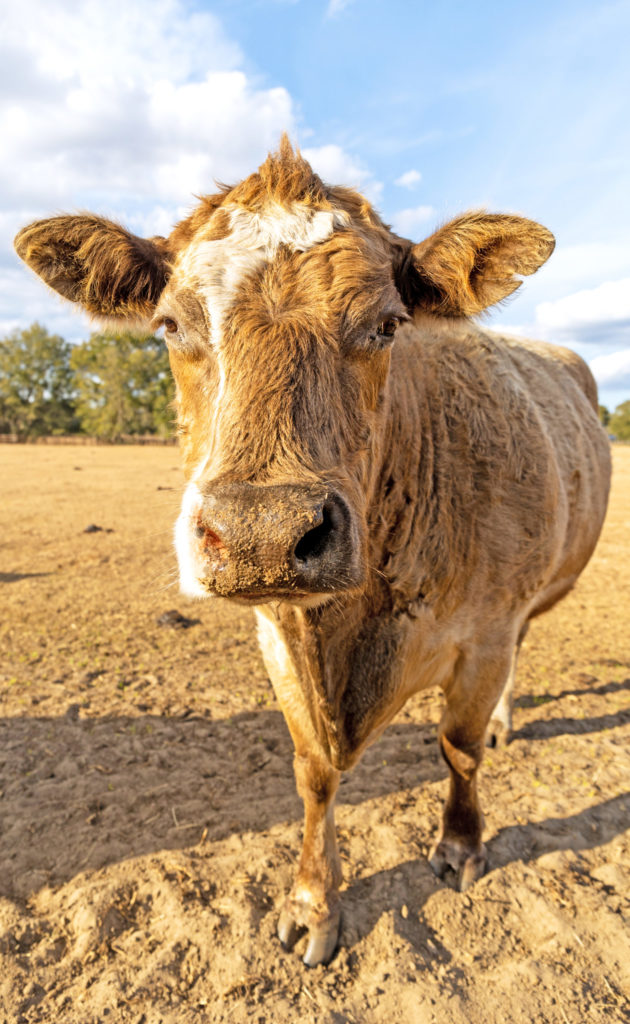
They also provide an environment where the public can have firsthand experiences with horses, burros, cows, pigs, goats, sheep, ducks, turkeys and chickens while learning about ways to help reduce the suffering of animals through their guided tours. The sanctuary is located on a sprawling 73 acres, but the tour is confined to an area of the property where the animals can be found peacefully grazing in green pastures and where many of the animals are housed in well-maintained outbuildings. Tours last about two hours and are offered free of charge, but the sanctuary suggests a donation and they have lots of great items in the gift shop to help you remember your visit and also support their cause. The tour area is almost fully accessible for guests with disabilities and those who have difficulty walking can drive their car to the various stops.
KSS promotes a vegan lifestyle and while you don’t have to be a vegan to visit (or enjoy a visit), they do ask that you not bring any dairy, meat or animal-byproduct food items to the sanctuary out of respect for the animals, staff and fellow visitors. Dogs are not allowed on the grounds.
“The first thing I tell people is we appreciate you coming out. We love you. But you guys aren’t our clients, they are,” explains Tony, who generally leads the tours. “So, whatever they say is what goes. If someone doesn’t come over to the fence, you won’t get to say hi to them that day. That’s just how it works because this is their house.”
There are two regularly scheduled tours on the first and third Saturday of each month, but they also offer private tours from just one person to large groups.
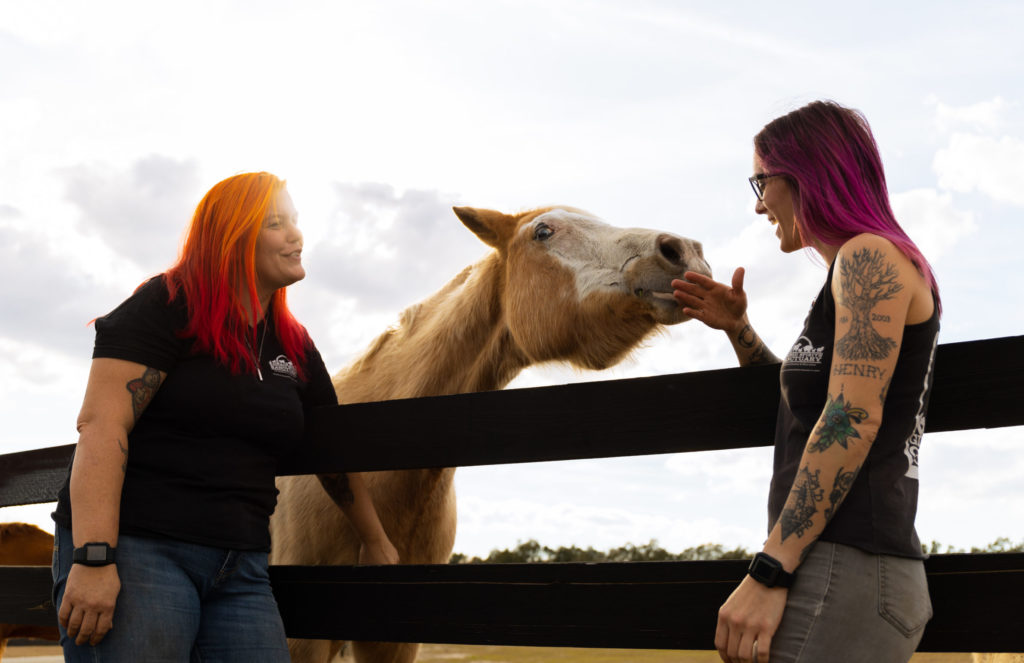
Of the close to 200 residents, you will find that each animal has a unique personality and guests can get to know them during the tour. Logan explains that it is exciting introducing visitors who have not had previous experiences with farm animals to their residents.
“Even when I started here as a volunteer, I didn’t really think that farm animals were like cool animals. I didn’t realize how much personality they have,” she offers. “So that was really eye opening in the beginning, being around them and realizing they are similar to a dog in that they like us and they have a bond with you and you can bond with them. I’d say I’m more of an animal person than a people person by nature. Being here has made me more of a people person, because we get to share what we do with other people. All of us love what we do, so it turns you into more of a people person because you want to share what you love with someone else. I really love that aspect of the job, watching other people come and interact with them.”
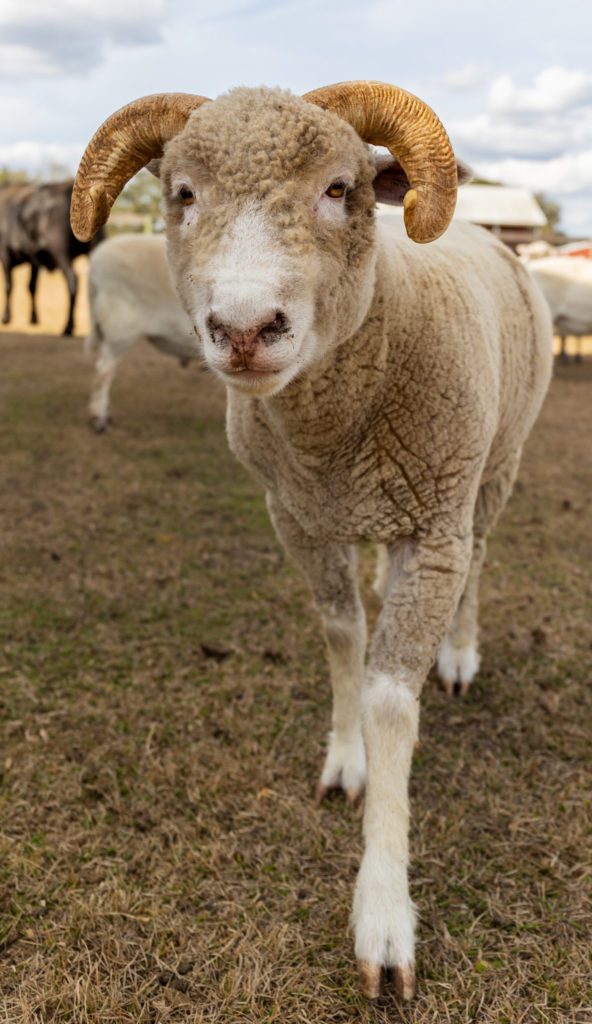
She describes watching a visitor encounter a cow for the first time while on a tour last year.
“It was one of my favorite tours we did,” she shares. “The guy had the biggest grin on his face and it’s like, ‘I’m petting a cow!’ Those moments are special and it’s cool to see other people get to have those experiences too.”
Visitors also learn about each animal’s backstory, such as how they were exploited or how they sustained an injury, and how they recovered under the care of KSS.
“We always say that we are family friendly, so we aren’t big on scare tactics or talking about scary things,” Logan explains. “We talk about individual animals and their story. I think that really helps no matter which side of the line you’re on, you know? Obviously, we’re vegans, and we live in the middle of farming community. My parents moved to Florida as cattle farmers. They cared about their cows. They took good care of them but they there were to serve a purpose, so it’s a totally different mindset.”
She stresses that they want to connect with everyone who visits through the individual stories about the animals and find a common ground no matter their beliefs.
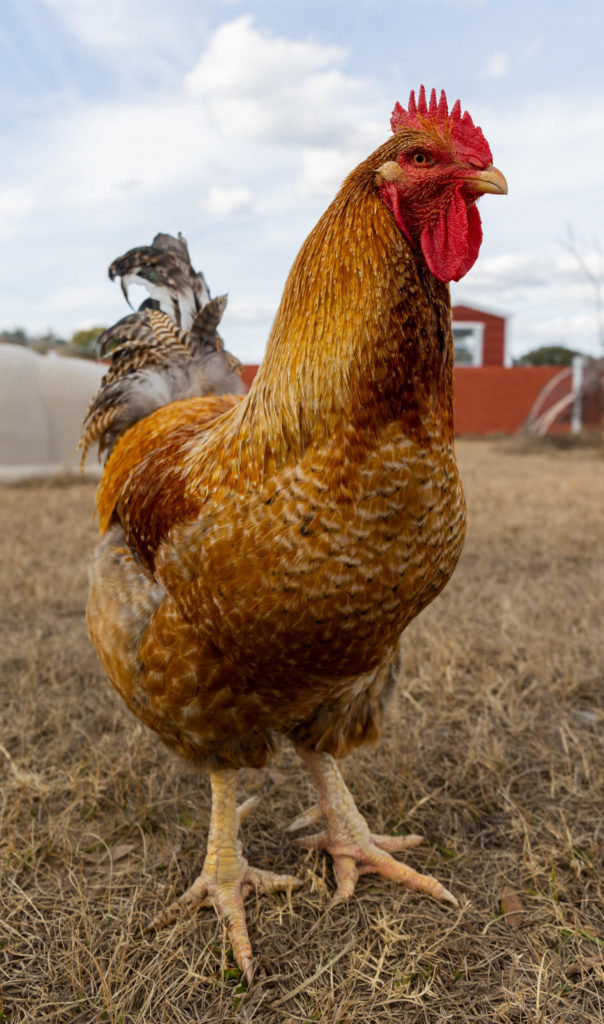
“I think most people think, ‘What that animal has been through is terrible.’ Most people are like, ‘That’s awful,’ and they wouldn’t wish that on anyone,” she asserts. “So, I think by doing it that way and not kind of speaking in more broad generalizations and saying everyone who does this is cruel…not everyone who does this is evil. We’re talking about a particular animal and the things that have happened to them. That’s what we find reaches people. We also talk about this a lot here, we’re a compassion-based organization, so we want to treat everyone with compassion, whether they agree with us or not, because we can’t reach you about animals if we don’t treat you kindly.”
For those who live a vegan lifestyle, KSS hosts special happenings like the Thanksgiving Day Potluck and Thank-A-Turkey event, where everyone brings a dish and enjoys a picnic aft er preparing a feast for the resident turkeys. It is an off shoot of some similar events Michelle Lovegrove started as a volunteer five years ago when she asked to use the sanctuary to host vegan potlucks.
“Sixty people showed up to the first one that I did,” she recalls.
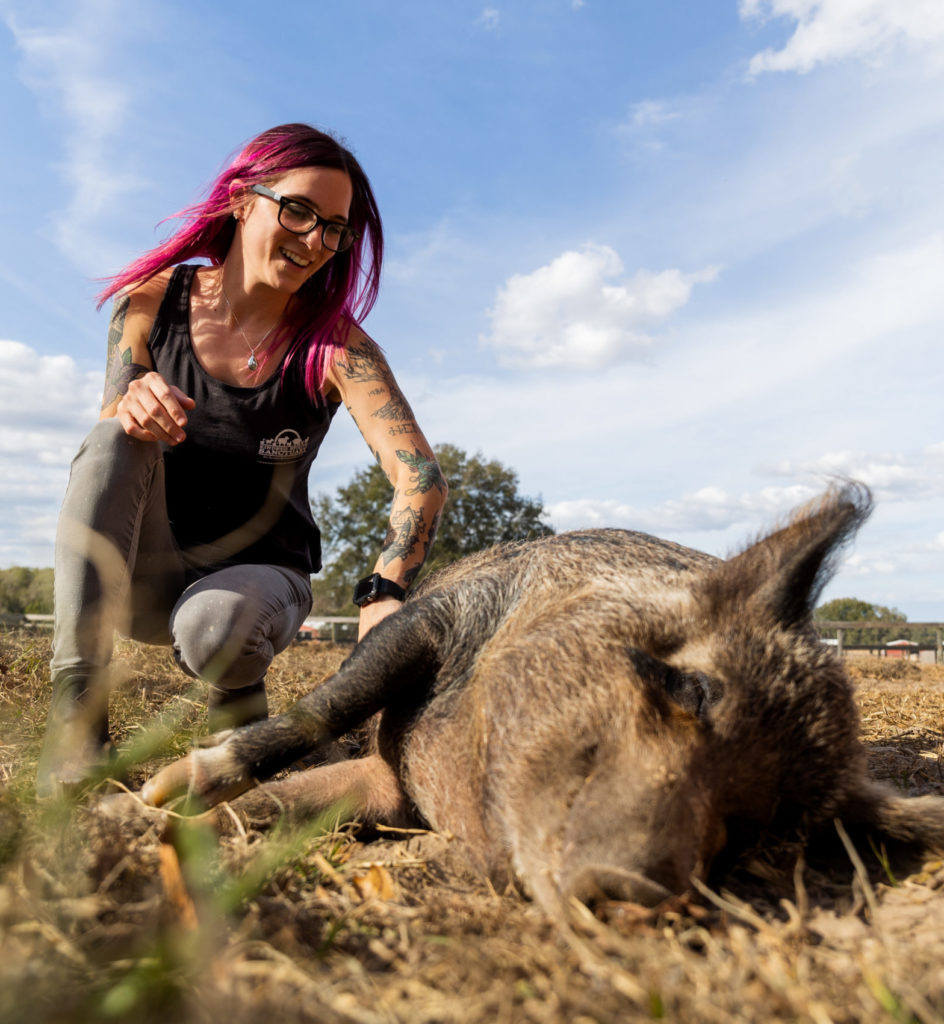
Michelle went on to become an employee, initially working on events and in marketing and caregiving before becoming the sanctuary manager.
“I do a little bit of everything now,” she offers. “But the best part is hanging out with cute babies like Milo.”
Ways to Help
Donate: Make a secure monetary donation through the KSS website or access the sanctuary’s Amazon Wish List on their Support page to gift items to the residents.
Volunteer: KSS has “work party days” where individuals or groups of up to 15 people help with projects such as barn cleaning, painting, grounds maintenance and fence repairs. Another big project they are planning is to transplant a group of young oak trees and they would be interested in anyone who has experience with that. The day ends with a tour and an opportunity to meet the residents. To sign up or for additional information, email michelle@kssfl .org
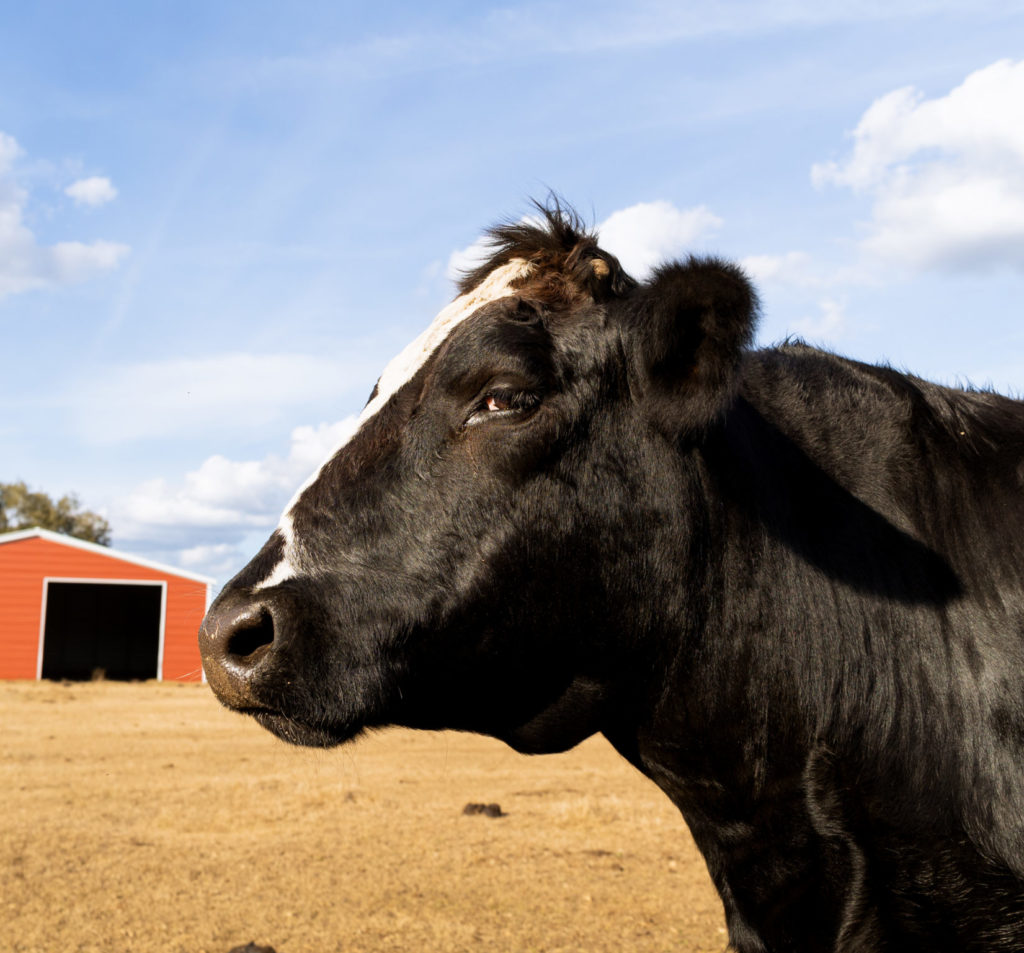
Host a Facebook fundraiser: Every dollar you raise goes directly to the sanctuary.
For more information, visit kssfl .org
